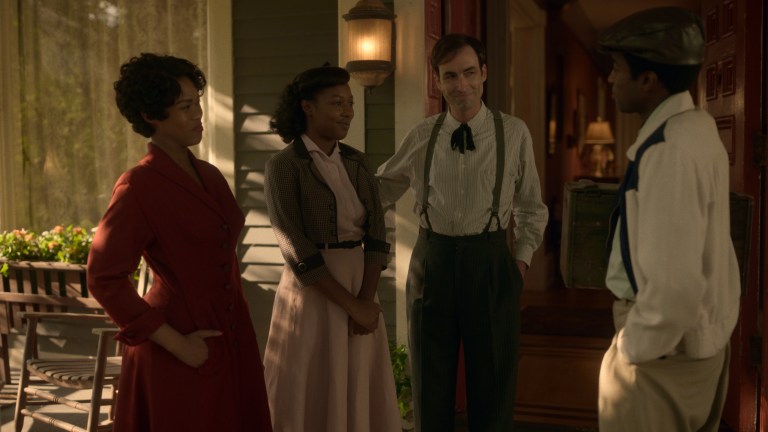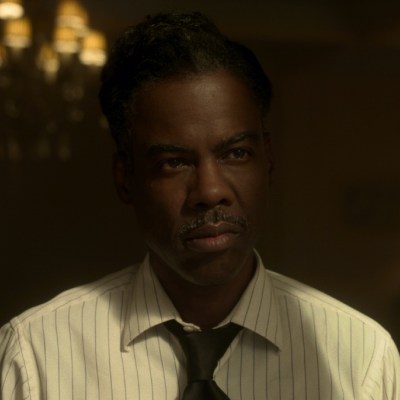Fargo Season 4 Episode 11 Review: Storia Americana
In the season finale, Fargo works with what it has and concludes its "Storia Americana."

This FARGO review contains spoilers.
Fargo Season 4 Episode 11
Despite a sprawling cast, greater narrative ambition, and a big, broad American Dream theme, Fargo Season 4 never quite lived up to its potential. Loy Cannon’s war against the Italian Fadda crime family was meant to highlight how the criminal underworld is just as racist and exploitative as the 1950s classrooms that biracial teenager Ethelrida Smutny inhabits. They both strive for assimilation, which feels like the real American dream, but their efforts are ultimately pointless. It’s a story that’s sadly relevant, yet Fargo never got as pointed with this message as it could have, instead doling out repetitive monologues about how racism functions that do more telling than showing. It feels odd to say, but the season often felt like too much and not enough at the same time.
That feeling is hammered home by a brief 38-minute finale that wraps up the story as best as it can. The episode begins with a montage of the season’s fallen soldiers, except none of these departed characters elicit an emotional reaction until we get to Doctor Senator, and even still, his death feels like ages ago. It shows how despite all of the talking, Fargo Season 4 never really endeared us to anyone beside perhaps Ethelrida, who was unwisely relegated to the sidelines for much of the season, and Rabbi, who was dispatched a few episodes back. We know early on that Ethelrida’s appeal to Loy last week worked, and that her family business is free from Cannon control. That means wrapping up the Fadda-Cannon war is the last bit of lingering business, and do we really care what happens here?
We spend time here discovering that Loy is able to quickly put down the insurgency that Happy and Leon were mounting, that mutiny that we only just learned was brewing last week. This could have been an interesting story-long arc, but instead feels like fodder meant to pad out the runtime of the final two episodes. Along with handling backstabbers, Loy takes his knowledge about Donatello’s death to Ebal, and Ebal has an interesting view on the order of events.
Here’s where I have to hand it to the writers; having Oraetta turn on Josto and tell the Fadda family that he asked her to kill his father is a fun twist that makes proper use of Oraetta as an unhinged agent of chaos. Ebal gathers his men and declares Josto to be an enemy of the family, even going as far to accuse him of killing Gaetano too. There’s no telling whether Ebal actually believes this or is taking his opportunity to seize control, but the way that the old consigliere behaves later in the episode when he’s finally in the seat of power suggests that maybe he’s just using the cards that he has to climb further up the ladder. In the end, Josto and Oraetta end up side by side in an unmarked grave, and Oraetta glimpses the Roach one last time before she meets her fate. It’s about as satisfying an ending as I could have hoped for on this front.
Loy’s ending is much more of a mixed bag. After helping Ebal into the position of power, the old Italian reneges on his deal with Loy, leaving him with half as much power as he had before the war began. Ebal bluntly tells Loy that’s because the Italians are a national network and he’s just a big fish in a small pond. It’s harsh reiteration of the season’s themes, but the return of Satchel and the realization that his family is together, safe, and prosperous gives Loy a sense of peace and contentment. Unfortunately, that feeling is short-lived and interrupted by Zelmare, who returns to avenge Swanee and stabs Loy to death on his porch. It’s a little too telegraphed and predictable and Satchel’s non-reaction doesn’t quite justify the explicit post-credit sequence that confirms Satchel is Season 2’s Mike Milligan. Like most of the season, it evokes little more than a shrug.
While Season 4 was never exactly a chore, it did at times feel like a slog. Clearly, COVID impacted the production to some degree and perhaps there was material cut or left unfilmed that would have brought more unity to the story’s overarching themes. There’s no way of knowing. What we do know is that perhaps it’s time for the Fargo brand to come to an end. This season in particular it felt like the dedication to the Coen aesthetic harmed the story more than helped it. Maybe the black comedy and anthology approach felt more novel in 2014 than in 2020. Season 4 seemed to think that an Easter Egg callback to its second season, a better story in every facet, was one of its most important, climactic moments. That should be enough of an indictment.


